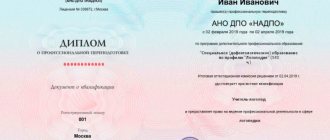Many remember with a shudder the moments when during their school years they had to memorize poetic works. Some of them seemed like huge sheets, and sometimes it seemed impossible even to grasp them with your eyes, let alone remember it all. For adults, this nightmare returns, but not in a dream, but in reality, if there is a schoolchild in the family who, together with his parents, has to regularly undergo this execution. Life can be made much easier by knowing how to quickly learn a poem without losing nerve cells.
What useful information will you learn by reading this article:
- How to learn poetry correctly?
- How to learn a verse quickly?
- The most common mistakes
- How to learn a very large poem?
- Read the poem out loud
- Write on paper
- Hum
- Use associations
- Use the snowball method
- Deal with unclear points
Step-by-step scheme for learning a verse by heart
A small step-by-step instruction helps in the process of memorizing the poem and shows how to learn poetry correctly:
- The first thing you need to do is read the poem twice, always out loud, try to understand the meaning of the written text and highlight important intonation points.
- Disassemble all complex words, lines, speech patterns and other difficulties that cause delays in understanding the essence of the work.
- While reading, build an associative series, connecting the emerging images with what is said in the poem.
- If visual memory is well developed, then you can copy each line of the poem onto a sheet of paper and learn from it.
- If your auditory memory is more developed, you can record your voice on a voice recorder so that you can later listen to your expressive reading and remember it. You can try to find an audio recording on the Internet.
- It is worth learning poems stanza by stanza. This way the picture and logical chain will form more clearly in your head.
- It is recommended to take breaks of 5-10 minutes between memorizing stanzas.
- Before going to bed, you need to read the poem very expressively, slowly. Already in the morning you can see a wonderful result - a learned piece that bounces off your teeth.
Recommendations for memory training
There are many methods and exercises for memory training in the world, almost all of them are effective. Let's look at the most popular of them, which have many positive reviews.
- During any mathematical calculation, you should put the calculator aside. By counting in your head or on paper and doing it regularly, a person increases your memory capacity significantly.
- Start your day by counting from 100 to 1. You need to count in this order and try to increase the speed every day.
- A fairly effective exercise is called “Cities in a Minute.” It's easy to do: in just one minute you need to name 60 cities, one city per second. You won’t be able to do this the first time, but by doing this task every day, you can notice positive results within a week.
- You can try learning new words. This technique will allow a person not only to train his memory, but also to learn a foreign language. Such exercises should be performed regularly, since just once the picture will not change, just like when training muscles. It is recommended to learn fifteen words a day and increase this barrier with each subsequent week.
- The simplest and most well-known exercise is considered to be the usual memorization of a poem. The important thing about this technique is its consistency, that is, you need to learn new poems systematically.
Read the poem out loud
This method is a quick way to learn a verse in 5 minutes. It is intended primarily for auditory learners. These are people who perceive, remember and understand information more easily and better by hearing.
Rhyming lines themselves promote memorization, but in order to better grasp the rhythm, you need to read the poem aloud several times. This needs to be done loudly, slowly and expressively, placing intonation and semantic accents in the calm and emotional moments of the poem.
Reading a work out loud with feeling and arrangement contributes to better memorization.
Write on paper to remember
A very effective method. How to quickly learn a verse - write it down. The technique is based on the properties of several types of memory. First, you need to expressively read the rhymed work 5-10 times, then write down everything that you manage to remember.
This will reveal problem areas in the poem that need additional work and reading several more times. Also, reproduction on paper connects motor memory to the learning process.
And if you recite a poem out loud, then additional auditory memory is activated. As a result, the text of the poem will be remembered much easier and faster, because three types of memory work simultaneously: auditory, visual and motor.
Sing poetry
Another way to learn a very long poem is to sing. No matter how strange it may sound at first glance, singing contributes to better memorization of large poems. Think about how many songs you know that you haven’t even tried to remember.
Check, maybe someone has already set the poem to music, as happened with the work of Tsvetaeva, Akhmatova, Polozkova. Or try it yourself by choosing your favorite melody or composing a new tune.
Deal with unclear fragments
How to learn a verse? Remove all unclear fragments. It is very difficult to memorize a text that contains unfamiliar, unusual words, names, grammatical structures and phrases, names, and outdated concepts.
As a rule, poetry is filled with such aspects. That is why it is necessary to deal with all the incomprehensible points in the text, look up the meanings in explanatory, synonymous and any other dictionaries.
This will help you better understand and imagine what the poem is about. Sometimes for these purposes it is useful to read the history of the creation of a work, analysis, reviews.
Parse every word
An obvious but very important tip. The child may not understand some words or structures in the verse. Make sure he understands all the epithets. Otherwise, no amount of cramming will help you avoid tears and mistakes. For example, in a poem by Konstantin Balmont, a child may well not understand the meaning of the word blade of grass.
Such examples, simple for an adult and complex for a child, are found in many works. For example, everyone knows Tyutchev’s first quatrain:
But no one remembers the last one:
Primary school students may well not know who Hebe is and how she relates to Zeus. Such moments are worth paying attention to.
Use associations
Another effective method that allows you to retain learned lines in memory for a long time is the method of associations. This method is based on the ability of the human brain to remember what it sees and then imagine it.
That is why the associative technique is to connect new information from the poem with those concepts, images, pictures that are well known.
One of the main conditions for using the method is the ease with which associations should arise in the head. They must also be completely individual. There is no need to remember the image that is imposed on you, for example, by the author of the analysis of the poem, otherwise you will forget it in a couple of hours.
You need to come up with associations for each line or quatrain of the poem, remember it and repeat it several times.
The necessary conditions
- Don't learn everything at the last minute. Most people try to do this in minutes. For example: they have breakfast in the morning and study at the same time. This method is absolutely useless; in an hour you will forget. It is best to do this a few days in advance.
- The verse must be taught in complete silence and calm. Put all your affairs aside. This is especially true for gadgets that can distract you.
- There is no need to start studying when you are under stress. Bad mood, negative thoughts, they will be unnecessary here.
Before you start a poem, read it well and get the gist of it.
Snowball method
Let's say associations, humming, repeated reading aloud and other methods did not really help. So, all that remains is to memorize. Layer the memorized lines one on top of the other: create a snowball. To do this, read the first line of the poem out loud as many times as necessary to remember it well without looking at the book.
After this, you need to do the same with the second line, and then combine both lines. Repeat several times. Now you can move on to the third line, fourth, and so on until the end of the work.
The memorization method takes a long time, especially when she needs to memorize large texts. But it is considered the most effective and poems memorized in this way remain in memory forever. It is enough to remember the first line, and all the rest will be remembered very easily.
Technology for large texts
If you have to learn long and complex prose, the method of memorization will be different from the method of studying simpler poetry. In such cases, the following sequence may be recommended:
- It is best to study voluminous material immediately before bedtime. Before going to bed, you need to read the poem as many times as possible.
- Write down the first words of each line. After this, you can try to recite the verse from memory. Gradually, words that serve as assistants should be removed. For example, you can initially focus on the first words in each line, and then leave hints only in every fourth line.
- There is no need to learn the passage silently or in a whisper; you should read the poems only out loud, loudly, clearly and in order.
- A modern method of memorizing poetry, tested by many teenagers, is reading the text recitatively. You can add a beat and you get a real rap. This is a very fun method of memorization, the main thing is to remember to recite the verse at the board in the traditional format.
Memorizing a poem is not as difficult as it seems at first glance. There are many different techniques for all occasions. Everyone will be able to choose exactly the method that suits them best.
Learning poetry with young children
The process of memorizing poetry with a small child can turn into an exciting game. It all depends on the patience and imagination of the parents. The following tips will help make it easier to teach your child to memorize the desired rhyme:
- Choose rhythmic verses related to the upcoming holiday;
- Get your child interested in a backstory about how, at a certain magical moment, he will come out and recite a poem for a special person, such as Santa Claus, dad, or someone else;
- You can draw a poem line by line or depict it using toys. The main thing is that it is interesting and fun;
- Say the verse as you play. No child likes to sit quietly in a chair and learn lines. Get ready for an active process.
Useful lifehacks
For the New Year, poems for Santa Claus, a beautiful birthday wish are better to learn. You don’t want to spend a lot of time on this, so it’s worth resorting to life hacks.
A variety of stationery products and modern computer technologies can replace the need for memorization.
Useful lifehacks:
- Write the text on a beautiful card from which you can read the wish.
- Using a multimedia board, you can display the work for everyone to read.
- Write down a wish on your phone and repeat the recording through the earphone and recite the verse.
Depending on the situation, one of the life hacks is used.
How to quickly learn a verse by heart using online services
To learn a large verse, you can use various services that can be found in large quantities on the Internet. These can be mobile applications, programs, various web services.
Each of the services has its own ways to easily help you learn a verse by heart: some swap the lines, others hide some of the words. In any case, they are all based on the properties of visual memory.
To learn how to memorize long poems quickly and easily, it is enough to master one or more methods. If you follow the instructions and connect all types of memory, then remembering the voluminous text of a poem in a short period of time will not be difficult.
Poems to improve diction
Related posts:
- Logorhythmic classes and correctional means By various means, speech therapy classes contribute to the effective correction of speech in children...
- What is "War and Peace" about? Summary of the novel “War and Peace” by chapters. All answers...
- What is folklore and how to use its forms? Small forms of folklore are successfully used in various types of activities for…
- Pedagogical conditions for creating a speech environment in the preparatory group of a kindergarten Conditions for creating a speech environment in a preschool educational institution. Techniques and methods of organizing...










